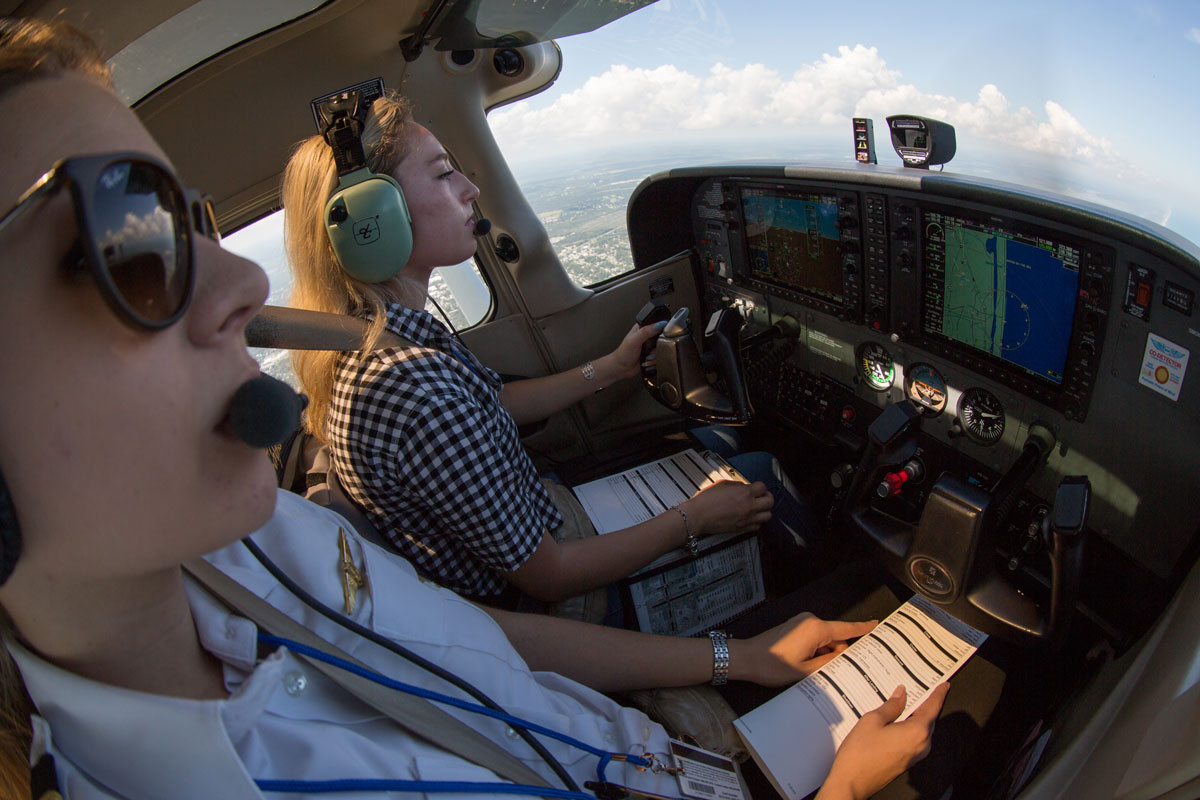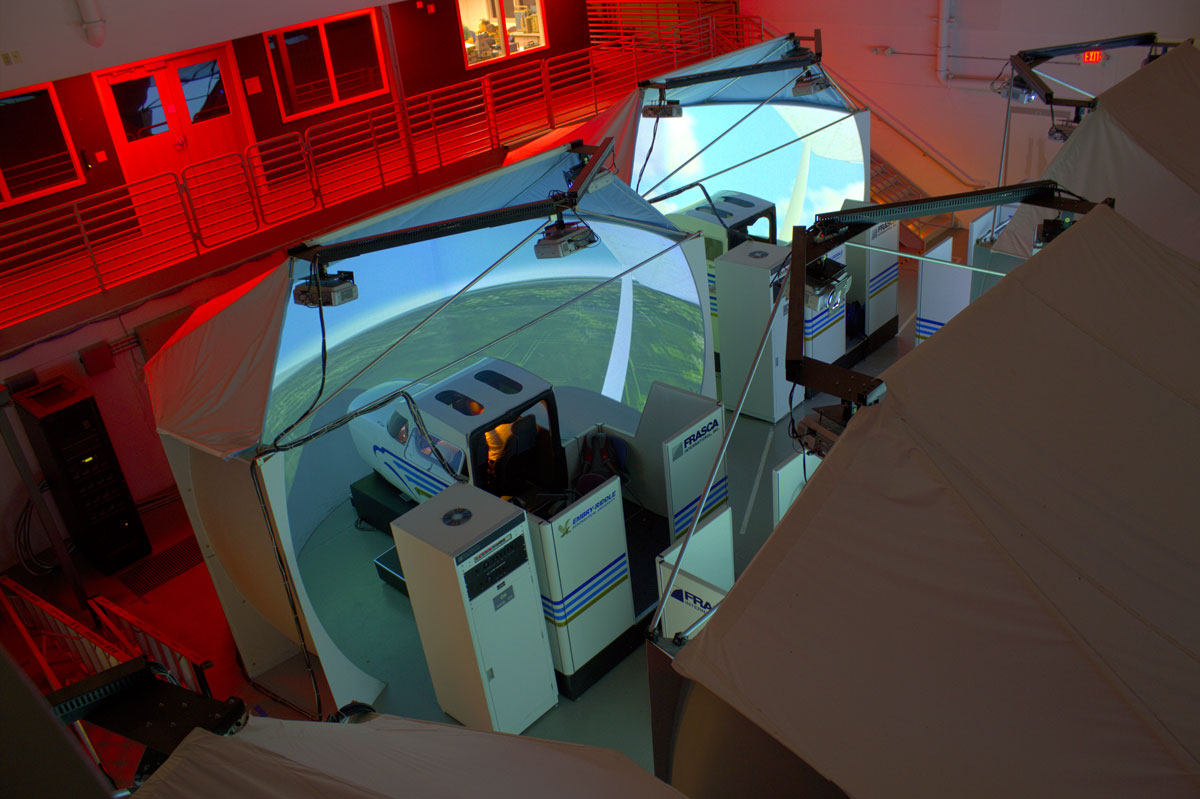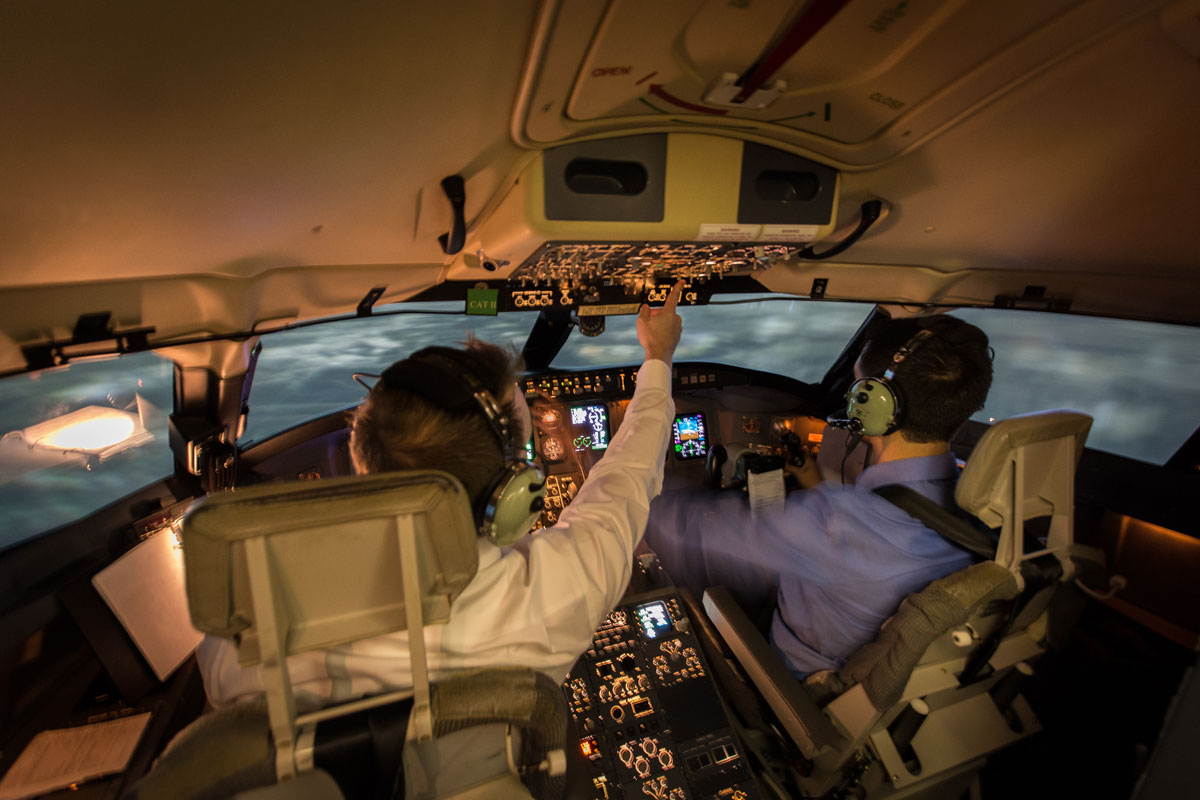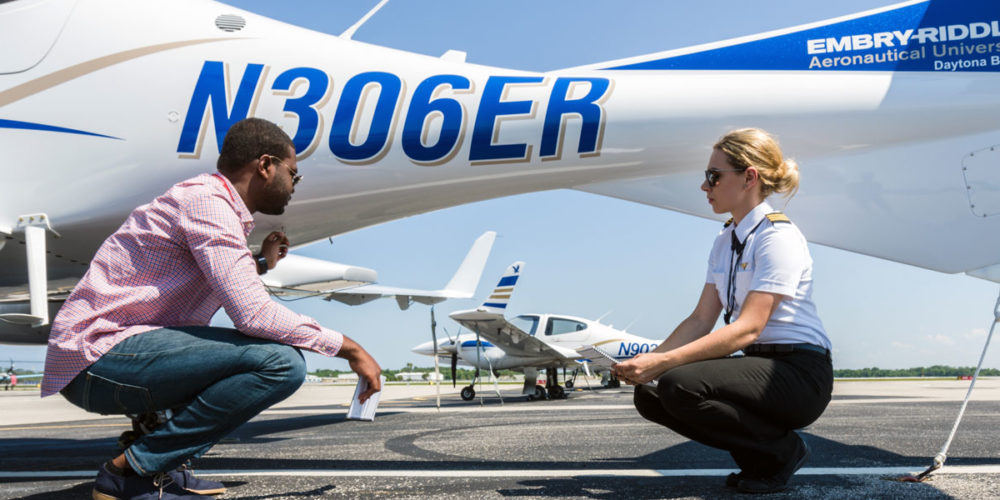Danielle Erlichman’s route to becoming a first officer for JetBlue began, appropriately, thousands of feet in the air. Before the Massachusetts native set foot in a classroom on Embry-Riddle’s Daytona Beach Campus, she was ensconced in the cockpit of a Cessna 172. “They take you on a discovery flight,” recalls Erlichman (’12, DB; ’15, WW), who earned a B.S. and a Master in Aeronautical Science — and served as a school flight instructor from 2011 to 2014. “They want to share with you the experience and the love they have of flying.”
For Erlichman, that exhilarating discovery flight was the beginning of a fast-track journey into the cockpit of a major carrier. Erlichman participated in Cape Air’s University Gateway Program, a unique partnership between the airline and Embry-Riddle that provides a path for undergraduates to progress quickly from diploma to flight instructor to captain at Cape Air — which helped her eventually earn a JetBlue interview. “I feel extremely fortunate to have been a part of the University Gateway Program because it brought me to exactly where I want to be for the rest of my career,” says Erlichman.
From Golden Eagle to Delta Pilot

Erlichman’s story from campus to the cockpit is far from unique. Roy Evans II (’04, PC) spends his working life as a pilot of Delta Air Lines 757s and 767s. “When I went to Embry-Riddle, I knew I wanted to fly airplanes for a living, but I had no idea what that involved,” says Evans. “I was lucky to have colleagues, professors and mentors at Embry-Riddle who showed me the way and enabled me to do what I do today.”
As much as Evans values the practical education he received, his time as a member and coach of the Golden Eagles Flight Team was the most formative and influential. In fact, Evans was first drawn to attend the Prescott Campus because he wanted to be part of the success of the Golden Eagles — which to date have won 10 national championships. Evans became a member of the team that won the 2003 National Intercollegiate Flying Association crown.
Evans concedes it was not always easy to balance school and team activities. But the intense extracurricular activity — with 20 to 40 hours of Golden Eagles training per week —honed a competitive mindset that helped him make the jump from SkyWest to Delta after 10 years. “When it comes to my day-to-day operations, I really notice where I’m excelling and where I’m falling short, and it really brings me back to the team and how we always had the drive to make ourselves better.”
The Embry-Riddle Way
Jerry Kidrick, chairman of the flight training department at the Prescott Campus, says it’s not surprising that Embry-Riddle’s graduates have a high rate of success in aviation careers.
“What you learn on day one here, you will carry with you for the next 40 years,” he says. He attributes the solid preparation students receive in part to the university’s state-of-the-art equipment and its fleet of training aircraft, which help students easily transition into any industry position.

“We have glass cockpits in everything we fly here, all students are doing their flight planning on computers, and there are computers in the airplanes. It’s a look ahead at where the industry is going as airplanes become more technologically advanced,” Kidrick says.
While training on the best equipment matters, the quality of the people makes the biggest difference. Most Embry-Riddle flight instructors are graduates and follow the school’s high-standards teaching approach, coined the Embry-Riddle Way of piloting, which dates back to the training philosophy of co-founder John Paul Riddle.
This time-honored dedication of instructor pilots pays serious dividends in their piloting careers. “When it comes to hiring, flight instructor experience is looked upon very highly in the industry,” says Scott Reese (’94, WW), an assistant professor of aeronautical science and an Eagles Flight Team coach at the Daytona Beach Campus. “It’s because of the technical knowledge they have, but it’s also because they have such good decision-making abilities.”
Practice Like an Airline
Ryan Albrecht (’02, DB; ’09, WW), who did his flight training at the Daytona Beach Campus but took his skills to the Prescott Campus, where he is now chief flight instructor, says creating an airlines-like atmosphere teaches effective aeronautical decision-making. “The whole focus is to have someone step out of here and take with them a mental philosophy about what is important in flying and a clear understanding of the skills they need to master and sustain,” he says.
Rob Schwerd (’03, PC) says the emphasis on functioning like an airline at Embry-Riddle was perfect preparation. Schwerd is a first officer on a Los Angeles-based Delta 737 and flies throughout Latin America, the Caribbean and North America.

With a team of people on his 737 today, Schwerd finds value in his Embry-Riddle coursework in crew resource management. “We talked about how to work together and to verbalize a problem and include everyone in decisions,” he says. “Once you get to a big airplane, it’s a bunch of people running the show, and lessons from those crew resource management courses are used on a daily basis.”
Nick Moore, a student at the Prescott Campus and member of the Golden Eagles who will graduate in 2018, says he’s looking forward to one day having an office in the sky. “I feel like I’m on my way with the experience and exposure I need, especially because I’m doing it at a place that has such a known name in the industry.”
